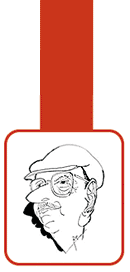:: Latin America
Worker self-management in historical perspective
09.25.2002
Worker self-management (WSM) has re-emerged as a major movement in Argentina, particularly this year with over 200 factories organized and controlled by their workers and a national co-coordinator of self-managed enterprises in the process of being organized.

Brazil: Neo-Liberalism, crises and electoral politics
09.08.2002
Brazil is the ninth biggest economy in the world, geographically almost as large as the USA with nearly 200 million people and in the deepest economic crises in 70 years.

Argentina: Between disintegration and revolution
06.20.2002
Throughout the early and mid-nineties, the international financial institutions (the International Monetary Fund and the World Bank), the regional financial institution (The Inter-American Development Bank) and the G-7 countries (North America and Western Europe) praised Argentina\’s liberalization program as an economic model for the Third World.

Western model, Third World disaster: Argentina 1990-2002
05.10.2002
From 1992-1997, the World Bank Annual Report praised Argentina as the model country in the Third World. Washington and Brussels joined in the chorus of praise.

“The coup was directed by the White House”
05.10.2002
Evidence is piling up of the Bush administration\’s role in last month\’s coup attempt against Venezuela\’s President Hugo Chávez.

Porto Alegre 2002: A tale of two forums
02.17.2002
The Social Forum (SF) which took place in Porto Alegre between Feb. 1-5, 2002 attracted nearly 70,000 participants, including over 15,000 delegates from almost 5,000 organizations.

The Unemployed Workers Movement in Argentina
01.27.2002
As far back as Gen. Juan Perón\’s 1946?1955 presidency, the northwestern Argentine province of Jujuy could rely on state-run companies and protected industries such as tobacco and sugar.

"You have to take action from below"
01.11.2002
A month ago, Argentina was a symbol of the disaster of the free market. Years of recession had driven unemployment to nearly 20 percent and pushed one-third of the population into poverty.

Argentinazo: positive lessons of Mass Direct Action
12.26.2001
The Argentinazo is the fourth and biggest popular uprising against authoritarian neo-liberal domination and political impunity.

Argentina: Christmas with food, toys and dead
12.24.2001
Pablo and Diego were running down the avenue past the crowds rushing in and out of the supermarkets and electronic stores.

Colombia: The FARC and the Trade Unions
12.11.2001
Colombia has the dubious distinction of having the highest number of trade union leaders and activists assassinated in the world (180 in the first 11 months of 2001).

Argentina: The Big Bed and the Popular Uprising ( Under the Bed Revolution )
12.09.2001
This account is based on a variety of stories told to me by various friends and companeros who were active in the Argentinazo.

The peasantry and the state in Latin America
12.01.2001
In the first setion of the paper we will discuss the relation between the peasantry and the state in Latin America, a relationship which has been complex and changing.

The geo-politics of Plan Colombia
11.25.2001
Plan Colombia, to be understood properly, should be located in a historical perspective both with relation to Colombia as well as in relation to the recent conflicts in Central America. Plan Colombia is both “new” policy and a continuation of past U.S. involvement in Colombia.

Brazil: The Rural Landless Workers Movement
03.18.2000
Over the past 30 years, Brazilian governments -both military and civilian- have proclaimed the need for \”agrarian reform\” but have resisted implementing an effective policy.

Overseas education: Dispelling official myths in Latin America
03.08.2000
One of the most important contributions that the study abroad program makes is to allow students and professors to contrast official (government and mass media) versions of reality with their own observations and experiences.

Rebellion in Ecuador
02.15.2000
On January 21 a popular rebellion, led by a coalition of Indians, peasants, and urban workers, supported by junior military officials occupied the Parliament, Judiciary, and surrounded the presidential palace.

The new revolutionary peasantry
10.18.1998
I was invited to give one of the inaugural speeches at the Second Latin American Congress of Rural Organizations (Congreso Latinoamericano de Organizaciones del Campo, CLOC) that took place in Brazil November 3-7, 1997.

Chiapas: The Mexican Kosova
03.18.1998
Mexican army invades communities, burns crops, ransacks houses, beats peasants, threatens community leaders, shouts obscenities to women, frightens children with overhead helicopters encircling villages.

Mexico is a virtual trade colony of the U.S.
01.28.1998
The massacre of 45 Indians in Chiapas by government-sponsored paramilitary forces has to be viewed within the broader context of regimes\’ vigorous implementation of the socio-economic model and its growing political isolation within Mexican society.

El Salvador: White paper on the white paper
03.28.1981
The State Department\’s white paper entitled Communist Interference in El Salvador purports to provide evidence demonstrating:




